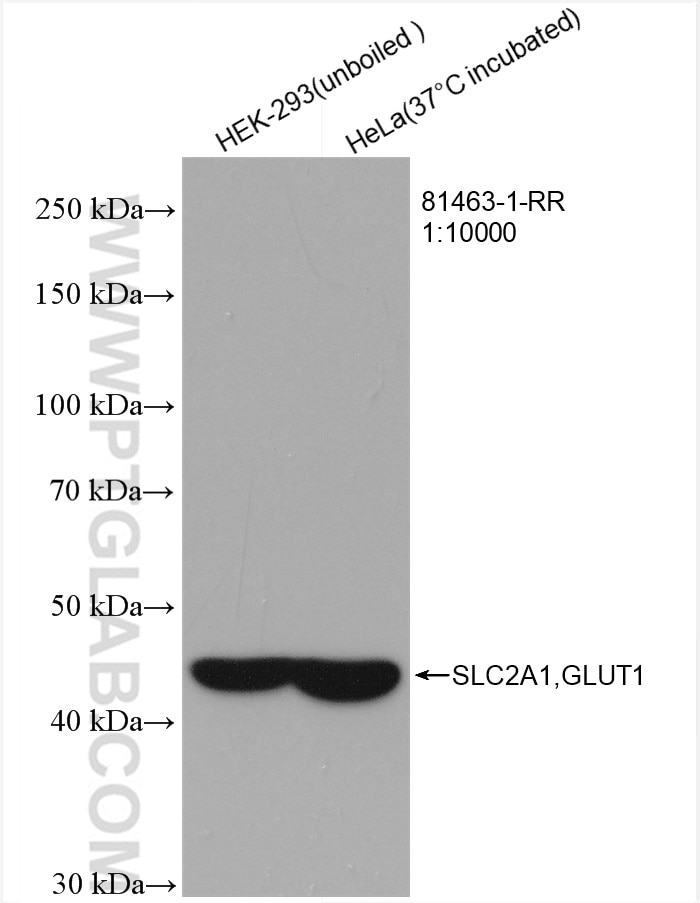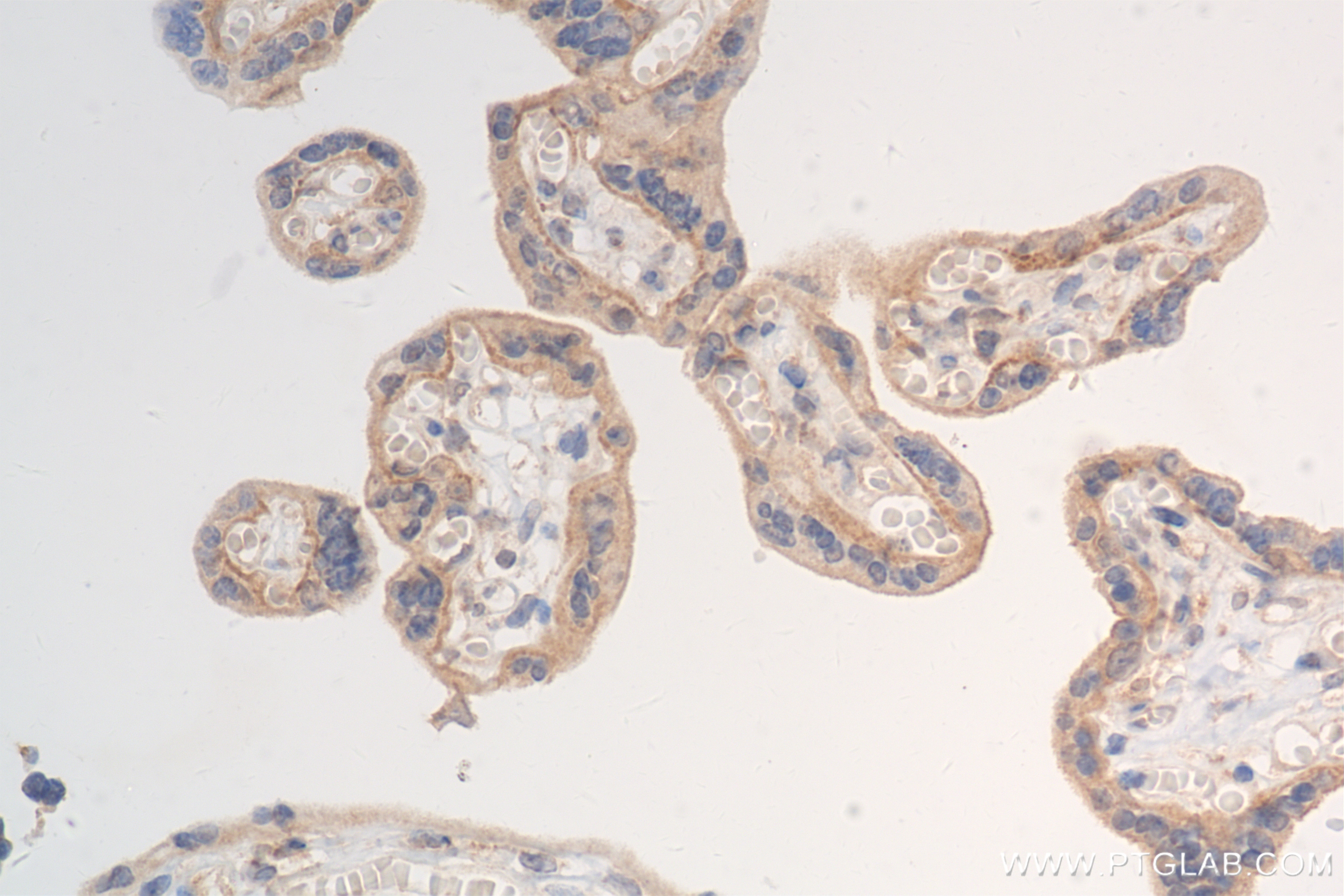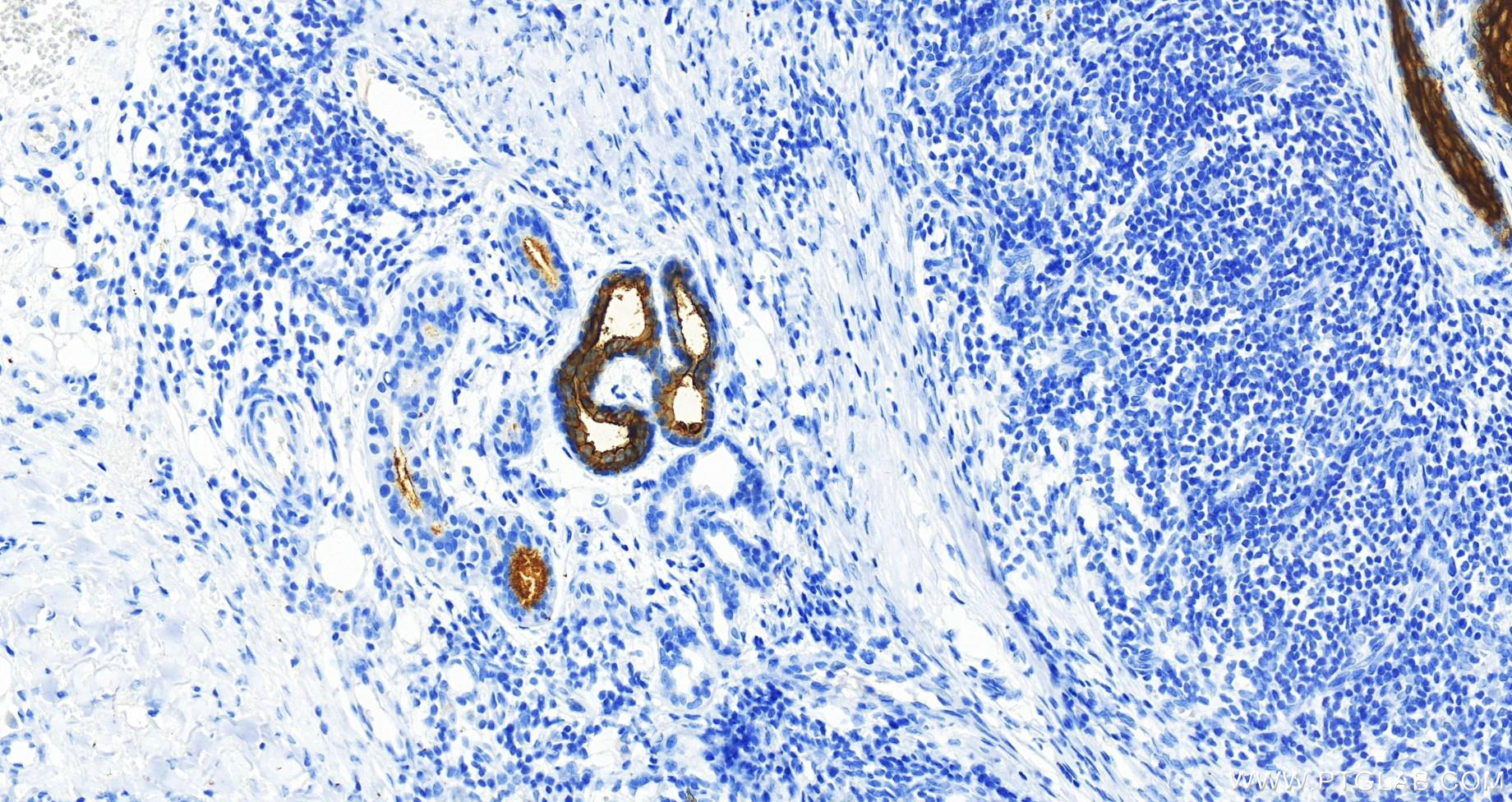Validation Data Gallery
Tested Applications
| Positive WB detected in | unboiled HEK-293 cells, HeLa cells (incubated at 37°C) |
| Positive IHC detected in | human skin cancer tissue, human placenta tissue Note: suggested antigen retrieval with TE buffer pH 9.0; (*) Alternatively, antigen retrieval may be performed with citrate buffer pH 6.0 |
For optimal WB detection with 81463-1-RR, we recommend to avoid boiling the sample after lysis.
Recommended dilution
| Application | Dilution |
|---|---|
| Western Blot (WB) | WB : 1:5000-1:50000 |
| Immunohistochemistry (IHC) | IHC : 1:1000-1:4000 |
| It is recommended that this reagent should be titrated in each testing system to obtain optimal results. | |
| Sample-dependent, Check data in validation data gallery. | |
Published Applications
| WB | See 2 publications below |
| IHC | See 1 publications below |
Product Information
81463-1-RR targets GLUT1 in WB, IHC, ELISA applications and shows reactivity with human samples.
| Tested Reactivity | human |
| Cited Reactivity | human, mouse |
| Host / Isotype | Rabbit / IgG |
| Class | Recombinant |
| Type | Antibody |
| Immunogen | GLUT1 fusion protein Ag16282 相同性解析による交差性が予測される生物種 |
| Full Name | solute carrier family 2 (facilitated glucose transporter), member 1 |
| Calculated molecular weight | 492 aa, 54 kDa |
| Observed molecular weight | 45-55 kDa |
| GenBank accession number | BC121804 |
| Gene Symbol | GLUT1 |
| Gene ID (NCBI) | 6513 |
| RRID | AB_2923718 |
| Conjugate | Unconjugated |
| Form | Liquid |
| Purification Method | Protein A purification |
| UNIPROT ID | P11166 |
| Storage Buffer | PBS with 0.02% sodium azide and 50% glycerol{{ptg:BufferTemp}}7.3 |
| Storage Conditions | Store at -20°C. Stable for one year after shipment. Aliquoting is unnecessary for -20oC storage. |
Background Information
GLUT1, also known as SLC2A1, is a ubiquitously expressed glucose transporter and is responsible for the basal level of glucose uptake in most cell types. Human erythrocytes express the highest level of GLUT1. Defects in SLC2A1 are the cause of GLUT1 deficiency syndrome type 1 and type 2. High expression of GLUT1 has been reported to be a reliable immunohistochemical marker for juvenile hemangiomas. GLUT1 protein may appear as two or more distinct forms among 43 kDa to 55 kDa due to the different glycosylation states. And the conversion of the highly glycosylated form of GLUT1 to a less glycosylated form has been reported to correlate with differentiation (PMID: 8263524, 23302780).
Protocols
| Product Specific Protocols | |
|---|---|
| WB protocol for GLUT1 antibody 81463-1-RR | Download protocol |
| IHC protocol for GLUT1 antibody 81463-1-RR | Download protocol |
| Standard Protocols | |
|---|---|
| Click here to view our Standard Protocols |
Publications
| Species | Application | Title |
|---|---|---|
Br J Cancer Relationship between the expression of PD-L1 and 18F-FDG uptake in pancreatic ductal adenocarcinoma | ||
Cell Death Dis Scutellarin activates IDH1 to exert antitumor effects in hepatocellular carcinoma progression |


